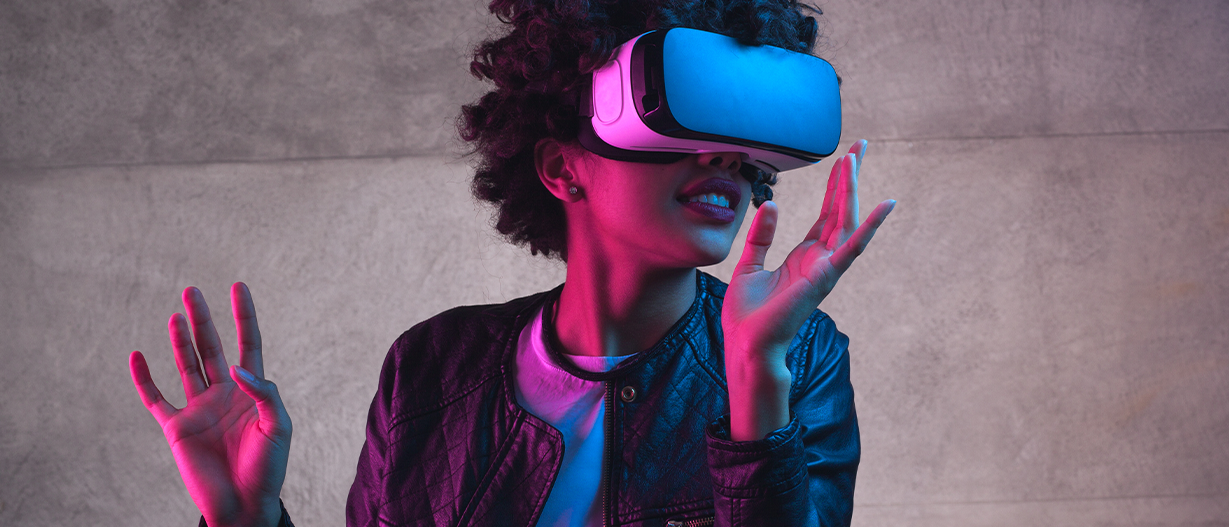
The multidisciplinary team at the Virtual Reality (VR) research lab is using digital technologies, and more specifically VR, to explore mechanisms underlying the onset and maintenance of mental health disorders. The research also aims to contribute to better translational research, from more experimental and basic scientific research to create new therapies and diagnostics.
Rapid technological advances, such as smartphones, physiological signal trackers and head-mounted displays (VR), are increasingly available and have gained computational power over the recent years. This has resulted in an increasing interest in, and increased in the possibilities of, using digital tools to deliver pioneering and integrative mental health services for individuals with mental health problems. Therefore, the lab works on improving key challenges to bridge the gap between research and clinical practice, such as:
a) to use digital devices which are more portable and user friendly and
b) to design virtual environments and on-line psychological interventions adapted to specific target populations (e.g., young people, carers, patients with specific mental health disorders), and
c) to carefully test these interventions, and make them available and offer training to mental health professionals. The equipment available in this lab combines fixed VR stations with portable VR headsets, physiological testing (including wearables) and programming expertise.